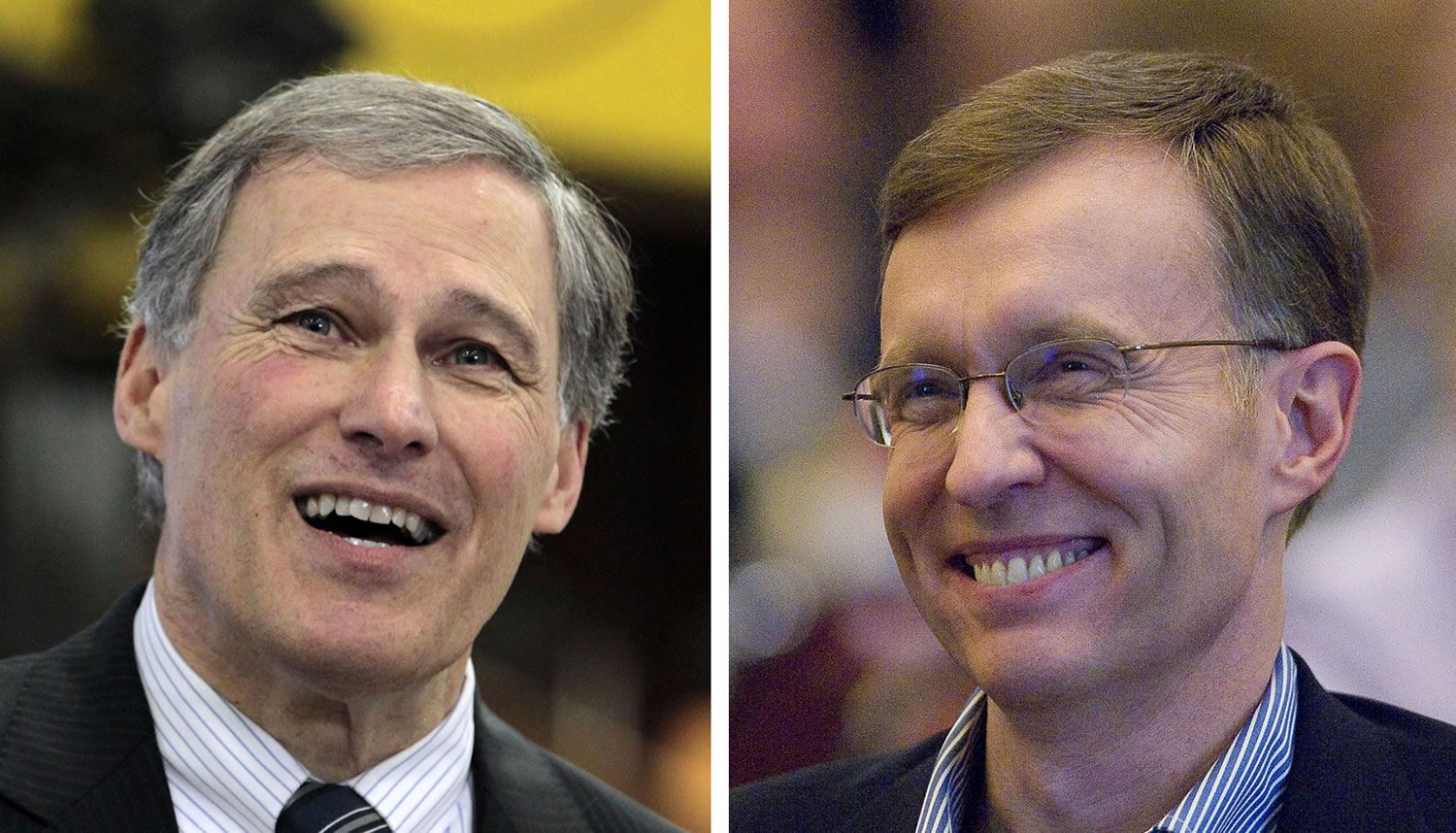What can the next governor do to get people back to work?
Even before news that the state jobless rate ticked up to 8.6 percent in August, the gubernatorial candidates — Democrat Jay Inslee and Republican Rob McKenna — were dueling over the state’s role in the economy.
Inslee, a former congressman, says the state should focus on key industries. His plan would create a new economic agency, and offer tax breaks and other aid.
McKenna, a two-term state attorney general, dismisses the notion that the state can do much to create private-sector jobs beyond getting out of the way. His plan would pare “burdensome or duplicative” regulations, simplify sales-tax collection and possibly offer a tax cut for small businesses.
August’s jobless rate rose slightly from 8.5 percent in July; it was down from 9.2 percent in August 2011, according to the state Employment Security Department.
A governor’s ability to reduce the jobless rate is limited. The economy generally rises or falls with national trends. But the state economy will have big implications for the next governor, as weak growth would obstruct promises to find more money for education or other priorities.
The Inslee plan
Inslee’s jobs plan sketches dozens of ways he’d try to grow seven industry clusters: clean energy, aerospace, life sciences, agriculture, information technology, military and maritime. This focus borrows in part from the regional economic-development blueprint adopted by the Prosperity Partnership, a coalition of major Puget Sound business, labor and government groups.
Inslee’s plan includes new government offices and advisers who’d work to grow these industries. He’d create an Economic Competitiveness and Development office by transferring positions out of the state’s Department of Commerce. Inslee also plans to create an Advanced Sustainable Biofuels Center of Excellence, affiliated with Washington State University, to push advances in clean fuels, and a Washington Center for Marine Innovation to buttress shipbuilding and other maritime work.
Inslee’s proposes three years of tax breaks for clean-energy, biotech and computer startups, and extending tax breaks for renewable-energy development and companies investing in manufacturing and research.
And Inslee wants a business-and-occupation tax credit for small businesses that hire, with the credit scaling depending on workers’ wages. The credit would be capped at $4,000 per hire and at $8 million for the state.
McKenna calls the plan a bureaucratic boondoggle.
The McKenna plan
McKenna says his approach relies on the private sector and has been informed by his chats with small-business owners.
McKenna’s jobs plan calls for bringing in people with private-sector experience to run state agencies and a review of state regulations he argues are making it harder to run a business.
A state performance audit released this month concluded several state agencies regularly review and streamline business rules, as required by executive orders from Gov. Chris Gregoire and her predecessors. However, the report said the agencies were not formally measuring the results of streamlining.
McKenna also is proposing a possible B&O tax break for small businesses. If fully implemented, the tax credit would exempt about 118,000 small businesses from the B&O tax at a cost of more than $250 million a year to the state.
However, McKenna has said he’ll proceed cautiously with such a plan; it could interfere with his pledge of finding billions of dollars in money for public schools and universities. He said the tax relief could start small and be phased in over time.
McKenna also proposes simplifying the way state sales taxes are collected, arguing a change by the state a few years ago added too much complexity.
And he wants to introduce private competition into the state’s workers’ compensation system, noting that Washington remains one of just four states with a government monopoly on industrial insurance. Voters rejected that idea in 2010. But he said it’s worth another look.
Inslee calls the plan a generic GOP platform that doesn’t play to the state’s strengths.



